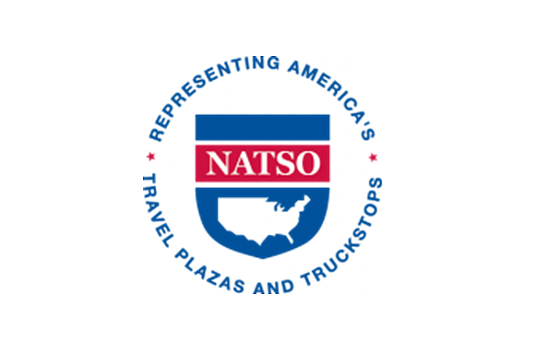The U.S. Department of Transportation should reject Arizona’s request to allow the state to sell food and fuel at Interstate rest areas, says NATSO, the U.S. association of travel plazas and truckstops.
“Arizona wants to sidestep federal law–a law that has been debated and reaffirmed in Congress many times,” said Lisa Mullings, NATSO’s president and CEO. “Rest area commercialization threatens thousands of businesses serving travelers at the interstate exits. This ill-advised proposal risks the livelihood of hundreds of Arizona business owners and their employees, and would hurt local communities who depend on the property taxes these businesses pay to fund schools and police.
“What’s more, the provision of federal law that Governor Ducey calls ‘nonsensical’ and would like to eliminate is in fact an important provision empowering the blind community in the United States. Blind-owned businesses currently receive priority for Interstate rest area vending opportunities,” Mullings continued.
In a letter dated Nov. 6, 2017, Arizona’s governor urges the U.S. Secretary of Transportation to allow his state to compete with small-town businesses, siphoning jobs, customers and local tax revenues, by establishing commercial rest areas along the Interstate right-of-way under a pilot program.
Arizona’s governor wants the state to sell goods and services to travelers, a move that would displace many of the restaurants, travel plazas, truckstops, convenience stores and other businesses that already exist at highway exits throughout the state.
Congress effectively privatized highway services in 1960, when Congress prohibited states from offering commercial services at rest areas along the Interstate Highway System specifically so that private sector entities would grow and provide services to the traveling public. Today, hundreds of thousands of established businesses, including travel plazas, convenience stores, restaurants and hotels are meeting the needs of highway travelers.
“This is not privatization, as the governor maintains. In fact, commercialization of rest areas uses government power to establish one business as a monopoly to the detriment of others operating in the free market,” Mullings said. “Rather than privatizing a government function, this proposal would transfer sales away from the private sector to the government.
“We don’t need a pilot program to see the effects of commercial rest areas on local communities and businesses because there are at least a dozen states that oversee commercialized rest areas,” said Mullings. (These state-controlled rest areas were already commercialized when the federal law was passed and were thus allowed to continue.) “We can witness the anti-competitive effect that commercialized rest areas has on Interstate businesses,” she said, citing a study conducted by Virginia Tech. The report found that there are 46 percent fewer gas sales, 44 percent fewer restaurant sales and 35 percent fewer truck service business sales. In total, this is a loss of over $55 billion in annual sales for interchange businesses.









